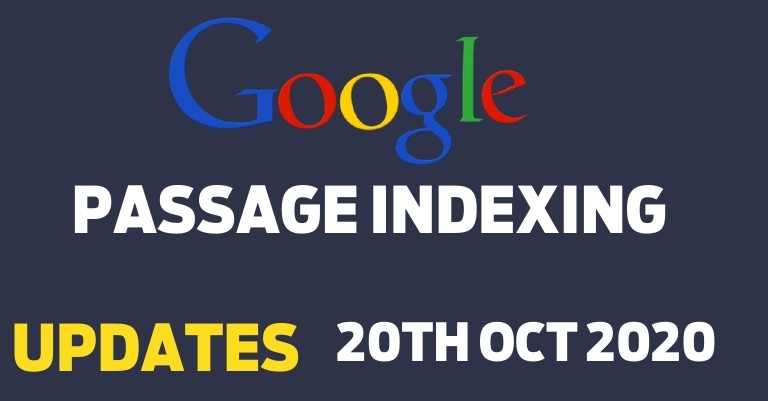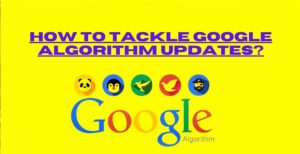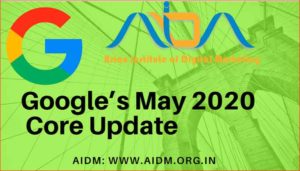In the recent Google summit, the executives have announced the new feature of Google Passage-based indexing. It will help the users to search the exact information relevant to their queries. According to google, certain searches can be the hardest to get right, said Google, “since some of the time the single sentence that answers your question might be covered somewhere down in a website page. We’ve as of late made a breakthrough in ranking and are currently able to not simply index website pages, yet individual passages from the pages. By better understanding the relevancy of explicit passages, not simply the overall page, we can find that extremely elusive little thing information no doubt about it.
According to Google passage-based indexing will affect 7% of search inquiries across all languages when completely turned out globally
Is Google indexing areas or parts of pages?

Google is currently indexing passage or areas of the page. Google isn’t. Google is still indexing full pages yet Google’s systems will consider the content and meaning of passages while determining what is most relevant. previously we were largely see the entire page about any search query
It is all the more a ranking change versus an indexing change
So indexing really has not changed here. It is all the more a ranking change, how Google ranks content, based on what it finds on your site page. Google isn’t, I repeat, not, indexing individual passages on the page.
What signals does Google take a gander at here?
So previously, Google’s systems would take a gander at a portion of the “more grounded signals about a page–for example, page titles or headings–to understand what results were generally relevant to a question. While those are as yet important factors, this new framework is useful for identifying pages that have one individual segment that matches particularly well to your inquiry, regardless of whether the remainder of the page is about a somewhat extraordinary or overall less relevant topic,” Google told us.
Will header tags be more important?
Does this mean header tags or the equivalent are more important at this point? Be that as it may, I think while title tags are pretty important signals, headers, in this case, might be more important when this turns out. Again, Google generally does not talk about explicit ranking signals and Google didn’t remark on headers as a ranking signal.
Google told us they have “always had an understanding of catchphrases and phrases in archives, however often things like page titles were extremely solid signals that helped us give the best overall pages.” Now Google can find that “difficult to find little item” and surface the most relevant outcome based on information within passages. Again, which explicit signals are important here, is hard to say.
It will be good if you learn SEO Course in Delhi yourself by joining the Digital Marketing Course in Laxm Nagar.
Isn’t this like Featured bits?
How does this vary from featured bits, where Google shows a passage of your content as an answer at the top of the Google Search Results. According to Google its Google systems determine the relevance & authenticity of any web archive via an understanding of passages. Featured pieces, then again, distinguishes the most relevant passage in an archive we’ve overall determined to be relevant to the question.”
Where is this passage algorithm generally helpful?

According to Google, These are the relevant results about the particular piece of information the individual is looking for is covered up in a single passage on a page that isn’t necessarily the main topic of that page.”
Suppose someone searches [how does BERT work in google search], previously Google might have returned a bunch of results that seem to be relevant overall. Google would have returned with the same story around BERT coming to Google Search.
Presently in the event that you have a really broad page that is about, suppose how Google Search works, and in that broad page, there is one BERT passage that actually explains how BERT works. Despite the fact that the remainder of the page isn’t super relevant, and those other BERT and Google Search pages might seem more relevant, Google’s new systems can focus on that the slightest bit, and rank that page higher. Being the best digital marketing institute in Delhi, we at AIDM always try to explore the latest update of Google updates for better understanding. If you feel good after reading this article, or you want to improve your knowledge about the latest update in digital marketing. You can join our digital marketing course in Delhi and grow your skills or knowledge in this stream.
Aslo Read:




